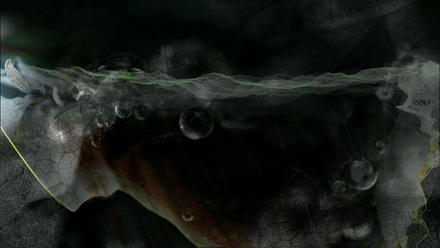
Vinny Golia, "Even to This Day . . ." (Ninewinds/pfMentum).
The current "Inoculations Music for Orchestra and Soloists" is 158 tracks of partially improvisational symphonic music by Los Angeles composer-windman Vinny Golia. It runs 10.5 hours, and that's just Movement 1 of three from "Even to This Day . . ." It is a joy and a wonder.
Substituting for much of the planned live orchestra, keyboardist Wayne Peet supplies string-synth masses, church organ and tweaky keyboard jams to support the scoring, which tumbles through many moods. Golia often writes with a more aggressive edge than in previous orchestral works, though certain distinctive scales remain. For the improvisations, he is served well by his long associations with bassist Ken Filiano, hand drummer Randy Gloss, pianist Vicki Ray, trumpeter Jeff Kaiser, saxist Steve Adams, tuba player William Roper, cornetist Dan Clucas, wind player Brian Walsh and other luminaries.
It's not that Golia wants to scare us, though many of his hair-raising sound specters, echoing Stravinsky and Shostakovich, could adorn any horror movie. It's more that he wants to transcend our shared fear. During MetalJazz's hours of listening, his "Inoculations Music" made impacts on the substantial and imaginary worlds.
MetalJazz experienced full-body paralysis, catatonia and resurrection.
We had dreams of archetypal floods and a mystic plumber.
We saw an enormous harvest moon slice through the Twin Towers of Century City.
We watched an earthworm crawl up and over a 5-foot vertical wall in the rain.
And then there was the Beverly Hills cop.
While driving through a residential neighborhood, MetalJazz was stopped by a Beverly Hills traffic cop on a small motorcycle with a large array of flashing lights. The cop was young, black, slender, handsome and polite.
BHC: Good afternoon, sir. These lights are for you.
MJ: Hello. Thanks for the lights. What can I do for you?
BHC: You made an incomplete stop at a stop sign back there. Beverly Hills has received complaints that its police have been harassing black people on Rodeo Drive, and I happened to notice that you are white. It's sort of an equality measure. May I see your driver's license, registration and proof of insurance?
MJ: Here you are.
BHC: Thank you, sir. I will be writing you a citation.
MJ: Really? But I'm driving a Mercedes!
BHC: The registration and license show that the vehicle is not yours and that you don't live here. Also, the vehicle is four years old and has a scratch on the rear bumper. There is another factor as well: What was that music you were listening to?
MJ: Vinny Golia.
BHC: It is quite dark and disturbing. Folks in these parts don't cotton to that. A good deal of it sounds like objects are being struck rapidly with sticks.
MJ: You mean like billy clubs?
BHC: We call them batons, sir.
MJ: That has a whole different meaning in music. Batons are for conducting. Drumsticks are for percussion. Anyway, I wasn't playing it loud.
BHC: The neighbors want a peaceful atmosphere, sir. May I ask where you are going?
MJ: I'm picking up someone from the hospital.
BHC: Best wishes for her recovery.
MJ: I didn't tell you who I was picking up. How did you know it was a woman?
BHC: We know many things, sir. Here is your citation. Please drive carefully and have a good day.
* * *
Listen to (free) and purchase "Inoculations Music" here.
IMAGE BY CAROLE KIM.
